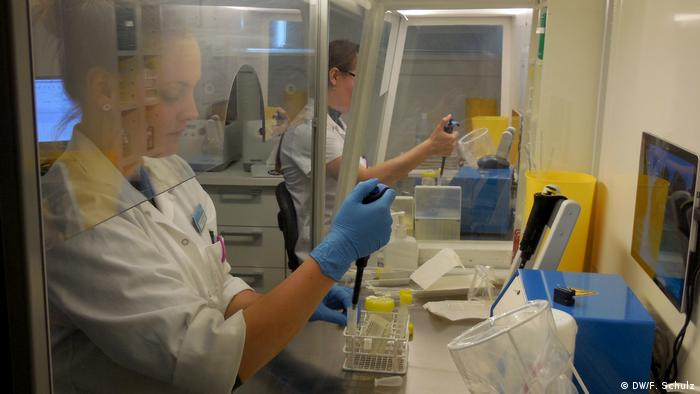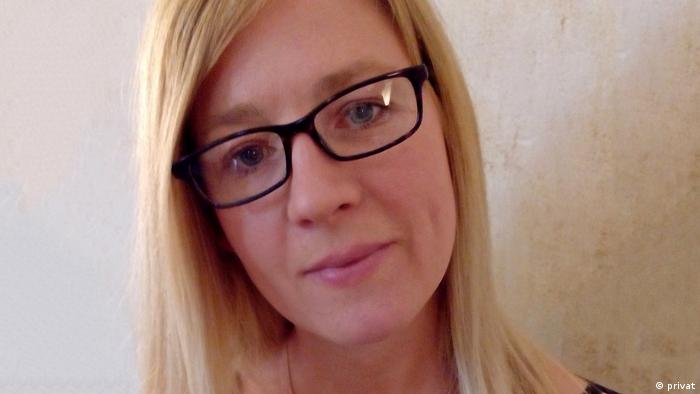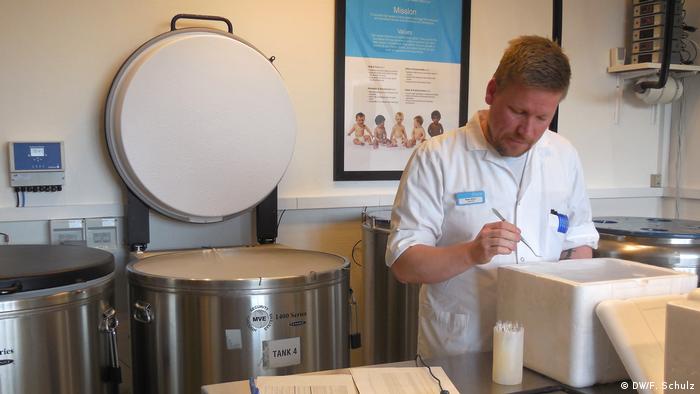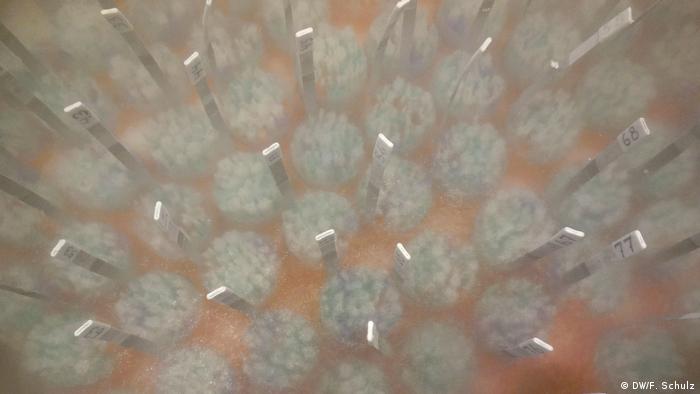Over the decades, thousands of children are created in Germany by seed donations from home and abroad. Today they have big problems to identify their fathers. A new database aims to change that.

Sperm Bank in Aarhus, Denmark
It was shortly before your 40. Birthday, Elisabeth G. from her mother learned that she is the child of a sperm donation. The truth came for the mother of two from Nothing. “It was unreal. My heart has wild knocked on the door, but really I have not understood it. I pulled away the ground beneath your feet”.
Maybe you should have been a suspect, says Elisabeth. She has an adopted older sister that was never a secret. However, the father felt his infertility as a serious flaw and his wife desperately wanted children. So the Couple decided to go to a fertility clinic in lower Saxony Bad Pyrmont, where they were given the seeds by an unknown donor. In may 1977, Elisabeth, came to the world, one and a half years later, her little brother followed.
To avoid cases such as that of Elizabeth, in force in Germany since 01. July 2018 a new law. At the German Institute for Medical documentation and Information Federal has introduced wide database for seed donations, which will allow each child learns from its conception through sperm donation to know the identity of his biological father. The documents must be kept for 110 years. However, the database lists only those children who were begotten from July 2018 – older vintages will not be listed in the Register.

Elisabeth G.: “I pulled away the ground beneath your feet”
Thousands of Danish sperm donations by Post
Officially, all the children of a sperm donation in Germany, the right to know their biological parentage, such as the Federal Constitution was the court in 1989. But there was always a way for the anonymous donation. A leads many women to Denmark. It is the only country in the EU that allows both anonymous and non-anonymous donations.
In the Danish city of Aarhus Cryos, the largest sperm Bank in the world is sitting. The company is located on two floors in a nondescript office building made of red brick. For 30 years, will be shipped from here, the seeds in all the world, in the Online catalog matching the donor according to physical features to choose, education, and occupation are given, by some men, there are even photos or audio recordings.
Parents want anonymity of the father
Earlier women were able to let the selected sperm for Self-Insemination, home, send, anonymously. Because the German law, which prohibits anonymity, actually relates only to fertility clinics, not private households. How many children have been sired by Cryos anonymously or non-anonymously in Germany, the seed Bank is not known. “We send a few Thousand semen Straws per year to Germany. Our Knowledge of the actual children based on the information of the reproduction of practices”, says managing Director Peter Reeslev.
On the same day Germany, the new database for a sperm donor introduced, also appeared in Denmark, a new law in force, the household ban on the supply of seeds to private. Since then, Cryos sends practices only to Reproduction, which excludes an anonymous mediation.

Cryos in the Danish city of Aarhus is the largest seed Bank in the world
But still women travel to Denmark to get there in clinics anonymous seeds. This can have various reasons, for example, is just hetero-want-sex couples often that there is no connection to the biological father, a social father is present, says sperm Bank-the boss Reeslev. “People find ways to get anonymous children. If necessary, in the night club or on the Internet. Then it is better to do this in a seed Bank where the seeds carefully on diseases will be tested.”
Everywhere locked doors
Anne Meier-Credner by the German Association of donor children aware of the problems of many people in the search for the father: “We also know of Doctors that have used their own sperm. Therefore, it was not always in the interest of the Doctors to document the producer. Many of the documents seem to be about the time gone, then, are sometimes cited water damage or fires.” In addition, some Doctors who practiced at the time are deceased, now. The more difficult the Search.
Some are lucky and find their biological father or other half-siblings through DNA databases. It has also tried to Elisabeth, so far unsuccessfully. The clinic in Bad Pyrmont does not exist any more, but Elizabeth is in contact with other children who were there witnessed. A man looks very similar, but he has not yet investigate.

The semen is frozen before it is sent to the fertility clinics
Her parents were told that their producers assistant was a doctor in the clinic, the more you know. “I feel an absolute uncertainty. Always, if I discover bad traits to me, I wonder if the come from him.” She feels powerless and angry that you are being deprived of the right to know something about the donor: “Everywhere one first stands in front of closed doors.”
So other than the brother
Documents to your production, there is no more – in the clinic, there had been a fire, she was told. After all, Elisabeth has, in retrospect, many of the problems in your family suggest. It must have been for her father, a burden that continues to be with the own childlessness faced, while his wife had by another man’s children, she says. And she knows now why she looks so different than your brother, why is it in contrast to the parent craft predisposed. The knowledge of their production has damaged her relationship to her mother: “I have cut me off inside of my mother that has me deprived of any basis of trust.” Your brother does not want to acknowledge the truth until today.
Elizabeth wishes she had known earlier of their production. Studies show that even small children can handle with this Knowledge, many develop a positive image of their biological father, if the parents talk openly about him. The most request of parents to consider sperm donation as a great gift. Completely unencumbered by the recognition of the own procreation through sperm donation would probably be never, says Elisabeth. “But it would have been much easier.”